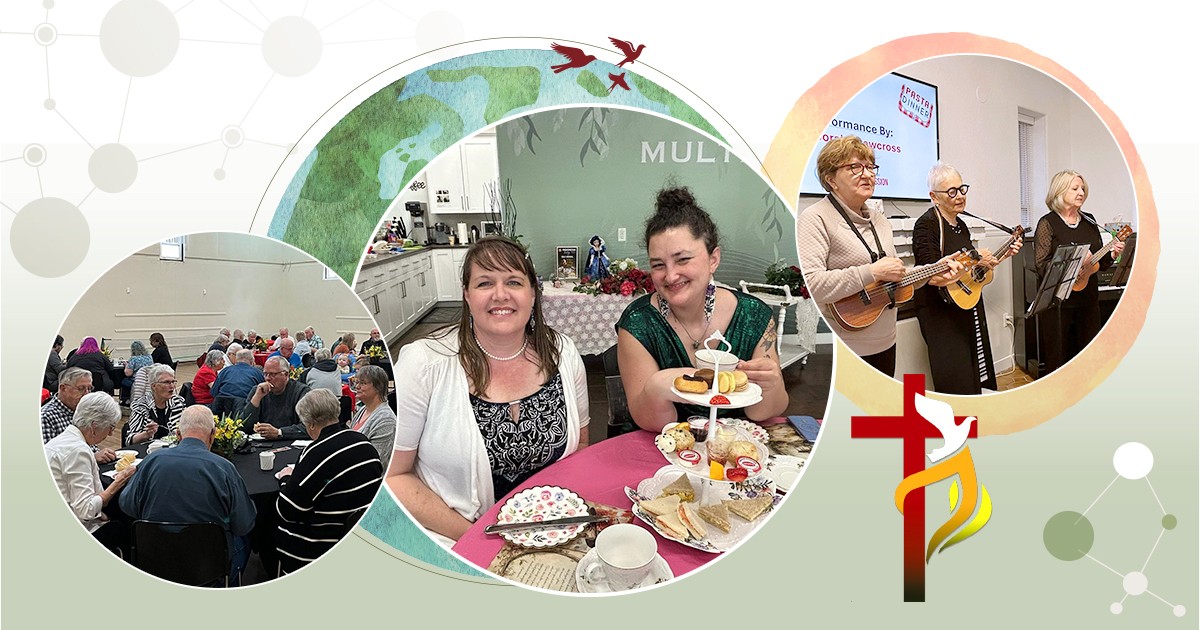If you’ve had or known someone with a toddler, you know the question stage, when you can’t utter a single sentence without them wanting to know more. Why do I have to wear socks with my shoes? Why do I have to brush my teeth? Why can’t I have hot chocolate with every meal? If you’ve lived through this, you know how exhausting it is. The questions are time-consuming and never-ending—as soon as you’ve answered one, another follows closely on its heels.
But as a follower of Jesus, I have learned the importance of questions. I have discovered the riches of the biblical text by asking who, what, where, when, why and how. I have come to appreciate that living in the questions is part of what it means to be human.
Jesus was the master of all question-askers. In the Gospel accounts of his life, he is recorded as asking 307 questions. In the Book of Luke, his first words were a question (see Luke 2:49). Jesus asks questions that others are too afraid, or too unaware, to ask.
I haven’t always been fond of questions. For most of my life, I’ve preferred answers. Answers are concrete and final, and that can be comforting.
In these last few years I have learned to love questions. I used to think that questioning—the Bible, my faith, God— was forbidden; that it hinted at my lack of belief. I thought it meant I wasn’t a good disciple, or that I didn’t trust God.
More recently I’ve learned that questions are less about unbelief and more about faith in the One who holds the answers. I’ve discovered that questioning God pushes my imagination to consider the limitless possibilities of who he is, and how he longs to be at work in the world. I know now that questioning leads to more questions and fewer answers, and yet God is there in the midst of the struggle.
I need to challenge the assumptions I hold about the world, about God, about feminism, about being a pastor, about being a mom. I am trying to value the questions in every aspect of my life, and in the life of the church.
I am learning to ditch simple answers and false pretenses in search of a more critical approach—to the gospel and the world. It is time-consuming and sometimes it is exhausting. But it’s always worth it as I fall more in love with God and his active and living Word. Each and every time I am not disappointed, but fascinated.
I encourage you to approach the world like a toddler. Ask why. Don’t settle for easy answers—keep asking. Keep seeking. Keep thinking critically. It’s not easy, but it is a life-giving project. Learn to love the questions.
Captain Kristen Jackson-Dockeray is the divisional youth secretary in the British Columbia Division. This is her last column in this series, and we are grateful for her contribution.
Feature photo: © pathdoc/stock.Adobe.com
But as a follower of Jesus, I have learned the importance of questions. I have discovered the riches of the biblical text by asking who, what, where, when, why and how. I have come to appreciate that living in the questions is part of what it means to be human.
Jesus was the master of all question-askers. In the Gospel accounts of his life, he is recorded as asking 307 questions. In the Book of Luke, his first words were a question (see Luke 2:49). Jesus asks questions that others are too afraid, or too unaware, to ask.
I haven’t always been fond of questions. For most of my life, I’ve preferred answers. Answers are concrete and final, and that can be comforting.
In these last few years I have learned to love questions. I used to think that questioning—the Bible, my faith, God— was forbidden; that it hinted at my lack of belief. I thought it meant I wasn’t a good disciple, or that I didn’t trust God.
More recently I’ve learned that questions are less about unbelief and more about faith in the One who holds the answers. I’ve discovered that questioning God pushes my imagination to consider the limitless possibilities of who he is, and how he longs to be at work in the world. I know now that questioning leads to more questions and fewer answers, and yet God is there in the midst of the struggle.
I need to challenge the assumptions I hold about the world, about God, about feminism, about being a pastor, about being a mom. I am trying to value the questions in every aspect of my life, and in the life of the church.
I am learning to ditch simple answers and false pretenses in search of a more critical approach—to the gospel and the world. It is time-consuming and sometimes it is exhausting. But it’s always worth it as I fall more in love with God and his active and living Word. Each and every time I am not disappointed, but fascinated.
I encourage you to approach the world like a toddler. Ask why. Don’t settle for easy answers—keep asking. Keep seeking. Keep thinking critically. It’s not easy, but it is a life-giving project. Learn to love the questions.
Captain Kristen Jackson-Dockeray is the divisional youth secretary in the British Columbia Division. This is her last column in this series, and we are grateful for her contribution.
Feature photo: © pathdoc/stock.Adobe.com










Leave a Comment